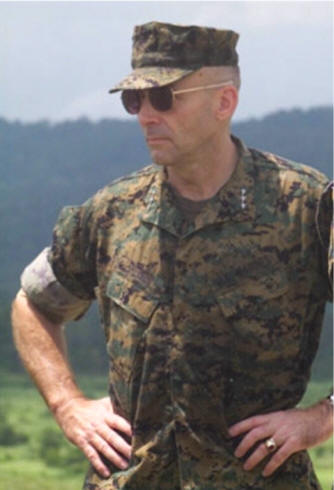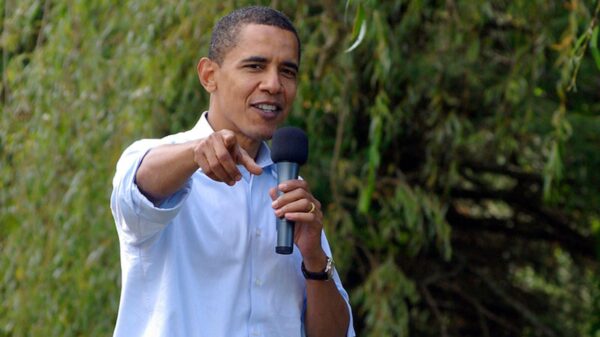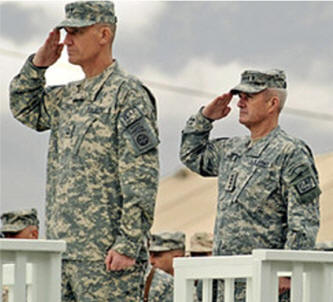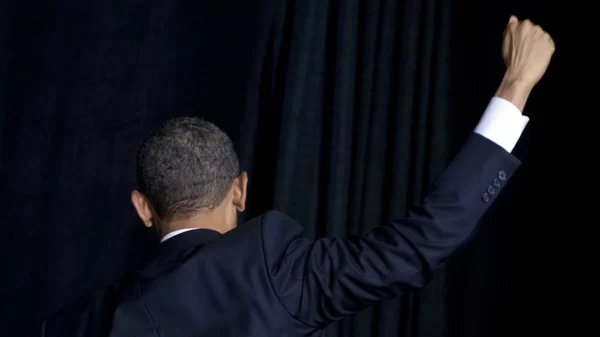WASHINGTON (By Peter Spiegel, WSJ) July 8, 2010 — Defense Secretary Robert M. Gates is expected to bolster the U.S. military leadership in Afghanistan by appointing a three-star general to Kabul, according to senior defense officials. The move underscores growing concern in the military over the course of the conflict and marks the first time since the seven-year war began that the U.S. will have two senior commanders there.

The appointment of Lt. Gen. David M. Rodriguez, who holds the military’s second-highest rank, hasn’t been announced publicly, and his exact role in Kabul is still being discussed. He was chosen by Mr. Gates last year to be his personal military assistant after a widely praised tour as a division commander in eastern Afghanistan.
The decision by Mr. Gates to move Gen. Rodriguez back to Afghanistan is the latest in a series of moves by the Pentagon leadership to play a more hands-on role in the Afghanistan war, after a year of rising violence and increasingly vocal criticism of the campaign plan within the military and on Capitol Hill. An internal task-force agenda reviewed by The Wall Street Journal detailed the growing concern.
Last month, the chairman of the Joint Chiefs of Staff, Adm. Mike Mullen, quietly assigned his top staff officer, Lt. Gen. Stanley McChrystal, to head the task force with the aim of improving the effectiveness of the Afghan strategy. Such strategic planning is usually left to commanders in the region.
The appointment of Gen. Rodriguez and the creation of the task force are both efforts “to ensure the Pentagon is on a war footing,” said a military official familiar with the recent moves.
Recent protests against civilian deaths blamed by Afghan officials on U.S. bombing raids highlight the growing difficulties the U.S. has been having in the region. On Thursday, a group of rock-throwing protesters, enraged by the deaths of dozens of civilians in the country’s western provinces, were fired on by local police. The U.S. military was still investigating whether civilians were killed by its bombing raid earlier this week, while a local official contended the death toll from the disputed incident had reached 147 people.
According to officers involved in Adm. Mullen’s task force, one of its main proposals is to create a cadre of soldiers who would go back and forth between deployments in Afghanistan and Washington. While back in the U.S., these soldiers would continue to work on Afghan strategy. This would be a huge shift from the way the war is being operated now, in which soldiers return to their home bases in the U.S. and can be redeployed anywhere in the world. The idea is to create a unit well-versed in Afghan culture and counterinsurgency tactics.
The presence of Gen. Rodriguez would also mark a big change in the Afghanistan war effort. Unlike in the Iraq war, which has been overseen by both a four-star general who develops big-picture strategy and a three-star general who handles the day-to-day running of the war, Afghanistan has had one senior U.S. general in command, Gen. David D. McKiernan now relieved by the appointment of Gen. Rodriguez.
Some of the Pentagon efforts are meeting resistance from the current military leadership in the region, including Gen. David H. Petraeus. Gen. Petraeus, as head of U.S. Central Command, is responsible for all American troops in the Middle East and central Asia, including overseeing Afghan war strategy.
According to a senior Defense official familiar with Gen. Petraeus’s thinking, the Centcom commander supports the idea of soldiers being redeployed to Afghanistan so they can be returned to regions they have patrolled in the past. But he has objected to having soldiers spend their stateside deployments in Washington reporting to the Joint Staff and working on Afghan strategy.
A spokesman for Gen. Petraeus declined to comment on the appointment of Gen. Rodriguez.
A spokesman for Mr. Gates declined to comment on the appointment of Gen. Rodriguez. Geoff Morrell, the Pentagon press secretary, said Mr. Gates “is always looking at ways to improve our operations in Afghanistan and how to get our very best people into critical positions there.” Gen. Rodriguez was traveling with Mr. Gates and was unavailable for comment.
Senior military officials said Gen. Rodriguez’s previous tour in Afghanistan as commander of the 82nd Airborne is viewed as one of the most successful counterinsurgency efforts there since violence began to rise three years ago.
Gen. McChrystal, the director of the Joint Staff who is heading the Pentagon’s task force on Afghanistan will now be replacing Gen. McKiernan with Gen. Rodriguez.
A military official familiar with the Pentagon’s recent moves said Gen. McChrystal, a former Green Beret, was picked to head the Afghan task force because of his experience in Iraq. There, as commander of special operations forces, he set up a system that sent troops back to the same neighborhoods when they returned to the theater — something the task force has suggested replicating in Afghanistan with general infantry soldiers.
The copy of the task force’s agenda shows the working group has been given a wide berth to bolster the entire Afghan war strategy. The agenda described the current war effort as “failing to adapt to an evolving situation” and said the “security situation in key areas is poor, stalemated or deteriorating.” It warned American political support could soon wane, but the administration’s new war strategy gave the Pentagon “emerging opportunities” to reinvigorate the war effort.
The task force’s sweeping agenda comes amid other signs the recent Pentagon moves may just be the beginning of a major overhaul of the Afghan campaign, egged on by growing discontent within the military ranks over the direction of the war.
An influential group of current and former officers, some of whom played key roles in backing the troop surge in Iraq three years ago, have quietly pushed for a major revamp for several months. They are urging the new administration to deploy thousands of additional U.S. troops next year and overhaul the military leadership there. The U.S. already plans to add 21,000 American troops to the 45,000 now in Afghanistan.
“Right now, we’re taking what we’ve been doing and simply applying some more resources to it,” said a retired senior military officer who has advised the Obama administration on Afghan strategy. “There needs to be a very, very hard-hitting look at what our military strategy is.”
























